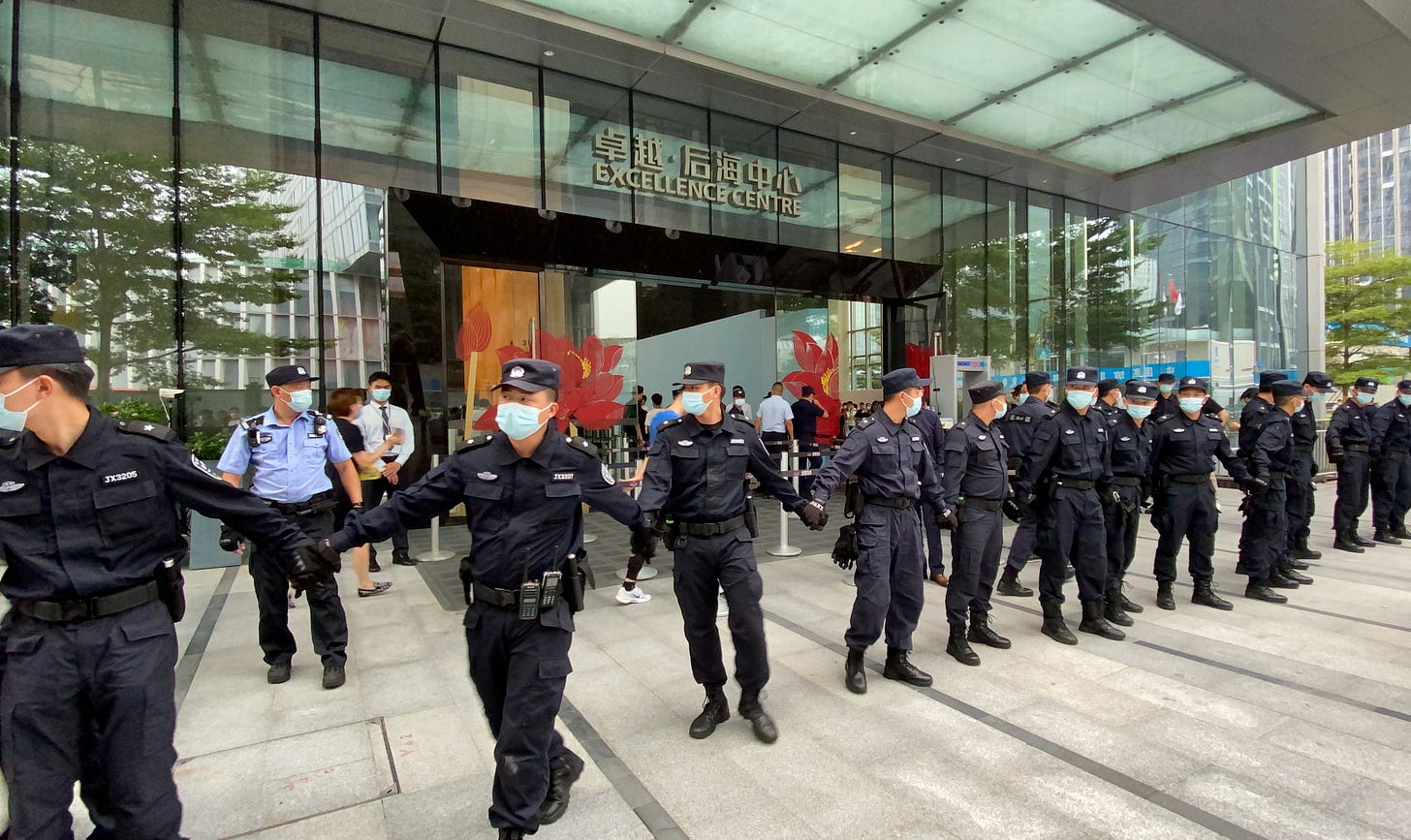China's Lehman moment?
Heads up.
Evergrande, China’s second biggest property developer, is at the brink of collapse.
They got stuck in a classic vicious cycle of liquidity problems that are now turning into insolvency problems. They are running over 700 major real estate projects in over 200 cities, and need money to finish them in order to keep selling them. Typically, they would issue short term debt (in the form of commercial bills) to finance the overdraft, but now many of its suppliers are no longer accepting these bills, so the company is forced to sell off its assets to make outstanding payments. Furthermore, last year the government imposed new deleveraging rules on major developers, forcing them to reduce their debt. This is when the problems started, as these major corporations used up a lot of liquidity to meet these new targets. As they started getting behind on their payments to suppliers they also started getting behind completing their projects, drying up their cash flow completely. As people started realizing this, the problems for the entire real estate sector only kept getting worse.
Last week a group of retail investors protested in front of Evergrande’s HQ in Shenzhen (guarded by a cordon of security personnel, pictured below), demanding their money back. It’s already too late for them.

Today, it’s share price listed in Hong Kong went down a further 18% (the Hang Seng Index went down 5%), making it a cumulative drop of 85% in the past 6 months (note the huge spike in volume of selling from July until September in the graph below). Chinese authorities have said they will not bail out the company, but the threat of letting it go under will disturb markets worldwide, not to mention cause an incredible disruption to the Chinese economy. In China, real estate is 15-20% of its GDP, and has been one of the major contributors to its economic growth for decades. Real estate represents the main (and often only) investment for many Chinese people, who typically make these investments through property developers like Evergrande. And Evergrande is just the tip of the iceberg as most major developers are facing similar liquidity problems.


It could very well be the beginning of a correction on US and European markets everyone was worried about in the midst of our current bubble.
Why? Well, a lot of major Western institutional investors like BlackRock, HSBC, Ashmore, UBS, Prudential, Goldman, Allianz, etc. are large holders of Evergrande’s bonds, which have been disintegrating to junk status in the past few months (see graph above). Its junk status is pulling down bonds of all other developers as well, with yields hiking. A lot of selling has been going on, and that selling is very likely to continue in stock markets.
So is it really going to be a Lehman moment for China? Or is Evergrande too big to fail?
It is next to impossible to predict what the Chinese Communist Party might decide to do (just remember the recent clampdown from its authorities on many of its tech companies that caused a stir in markets; Alibaba is an excellent example of such unpredictability, and the reason why it is a good idea to stay clear from Chinese stocks, especially now).
But Evergrande’s default does possess a high element of political risk. Next year the Party will be holding its 20th National Congress of the Communist Party (an event held every 5 years where new leadership is chosen), and its president Xi Jinping is looking to gain an unprecedented third term in office (which he very well could get). He certainly has very little interest to allow a full-on financial crisis to instigate any within-party opposition. On the other hand, perhaps he would use the crisis to cement his leadership even further. Again, very difficult to predict anything there.
So what should an investor do? Prepare for a correction this week. A full blown financial crisis like in ‘08 is unlikely in the West simply due to massive liquidity in the banking sector. But a correction in stock markets is always a possibility.
We will soon set up our predictions again to track all of this.
Stay tuned and if you’re here for the first time, don’t forget to subscribe!


